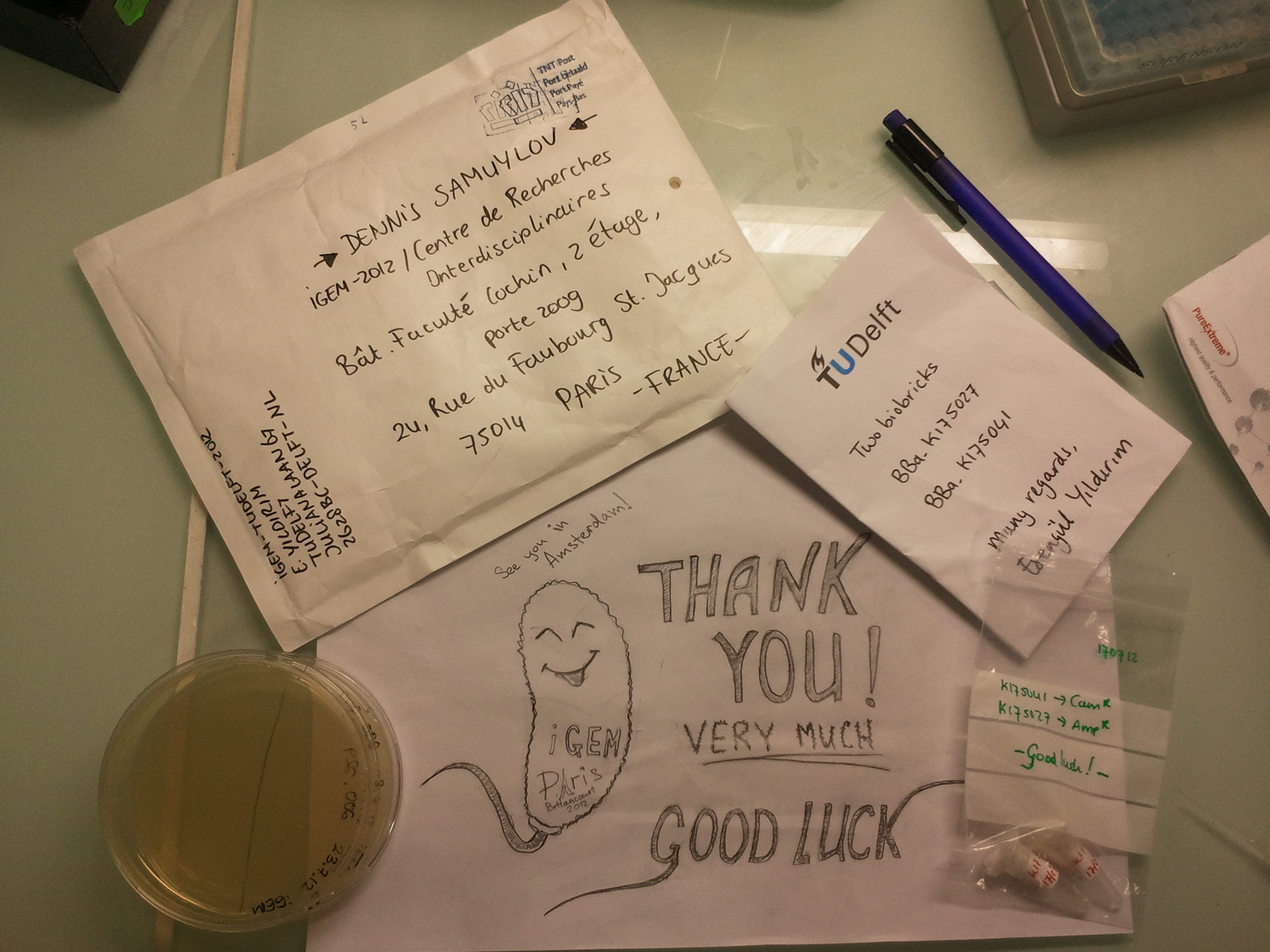Team:TU-Delft/Collaboration
From 2012.igem.org
| Line 14: | Line 14: | ||
<h3>Sharing Biobricks with Paris Bettencourt</h3> | <h3>Sharing Biobricks with Paris Bettencourt</h3> | ||
| - | <p>We are honered to have been asked by the <a href="https://2012.igem.org/Team:Paris_Bettencourt" target="_blank">iGEM team Paris Bettencourt 2012</a> to provide them two Biobricks: BBa_K175027 and BBa_K175041. Those biobricks were synthesized by the <a href="https:// | + | <p>We are honered to have been asked by the <a href="https://2012.igem.org/Team:Paris_Bettencourt" target="_blank">iGEM team Paris Bettencourt 2012</a> to provide them two Biobricks: BBa_K175027 and BBa_K175041. Those biobricks were synthesized by the <a href="https://2009.igem.org/Team:TU_Delft#page=Home" target="_blank">iGEM team TUDelft 2009</a>, project of which was Alkanivore. Alkanivore enables hydrocarbon degradation in aqueous environments. |
This year's project of Paris' team is Multiplex automated genome engineering (MAGE), a method for large-scale programming and evolution of cells. | This year's project of Paris' team is Multiplex automated genome engineering (MAGE), a method for large-scale programming and evolution of cells. | ||
</p> | </p> | ||
Revision as of 19:14, 23 October 2012


Sharing Biobricks with Paris Bettencourt
We are honered to have been asked by the iGEM team Paris Bettencourt 2012 to provide them two Biobricks: BBa_K175027 and BBa_K175041. Those biobricks were synthesized by the iGEM team TUDelft 2009, project of which was Alkanivore. Alkanivore enables hydrocarbon degradation in aqueous environments. This year's project of Paris' team is Multiplex automated genome engineering (MAGE), a method for large-scale programming and evolution of cells.

Crash Course with Amsterdam iGEM team 2012
Right after the new team formation, we invited the Amsterdam team to our University and we together snatched an initial idea of what iGEM project stands for. The crash courses were given by the instructors of both teams and helped us a lot to shape the idea of iGEM project and gave us a direction to walk to. The lectures given were with respect to:
- Synthetic biology, iGEM, Biobricks and Registry
- Modeling
- Societal valorization
- Genetic circuit design
- Network motifs
 |
 |
Life Science Symposium with Cambridge
On the 14th of May 2012, the 5th Life Science Symposium “Synthetic Biology – Redefining LIFE” was held in Delft. It was organised by the M&C TNW Department of TUDelft. Our team and the iGEM team of Cambridge 2010 worked together to present what the iGEM competition is and illustrated it by giving examples of our projects, odor detecting system and light emitting bacteria!


"Meeting of young minds" with UCL
Meeting of Young Minds organized by Rathenau Instituut in the context of the regional iGEM committee. The debate will be held in the evening of 5 October, aiming at the youth discussion of promise and perils of synthetic biology. UCL iGEM team 2012 and our team exchanged information for our two proposals and our subjects are finally honored.
Click here for more information about the upcoming meeting.

 "
"
